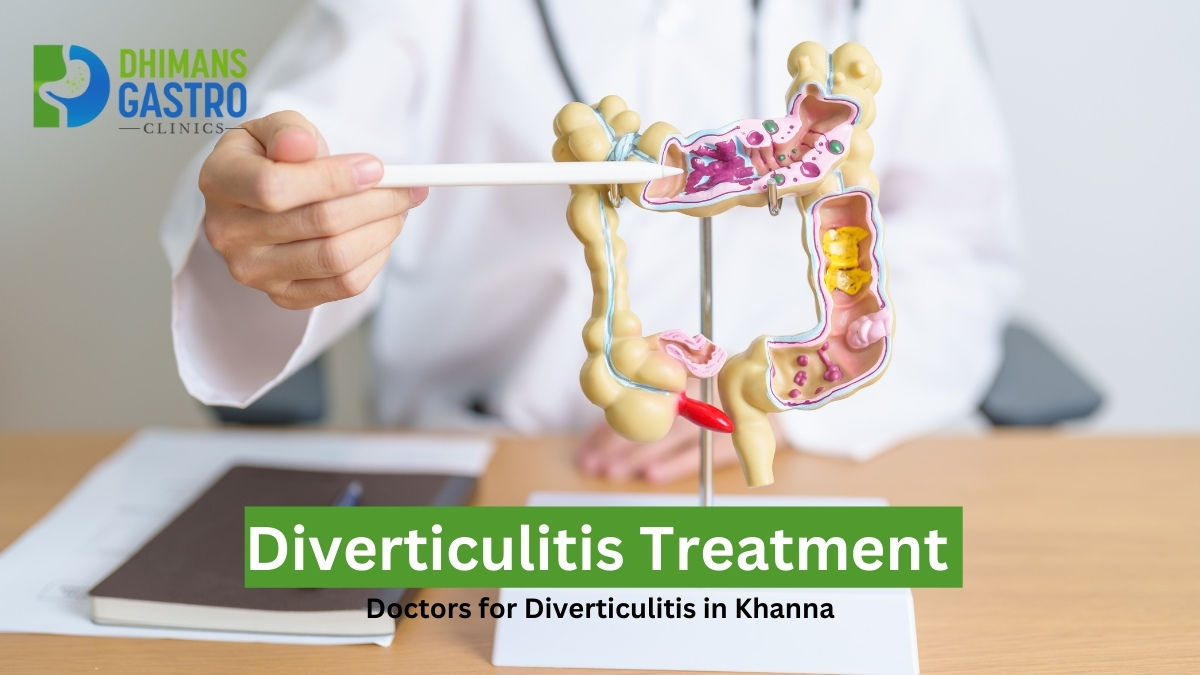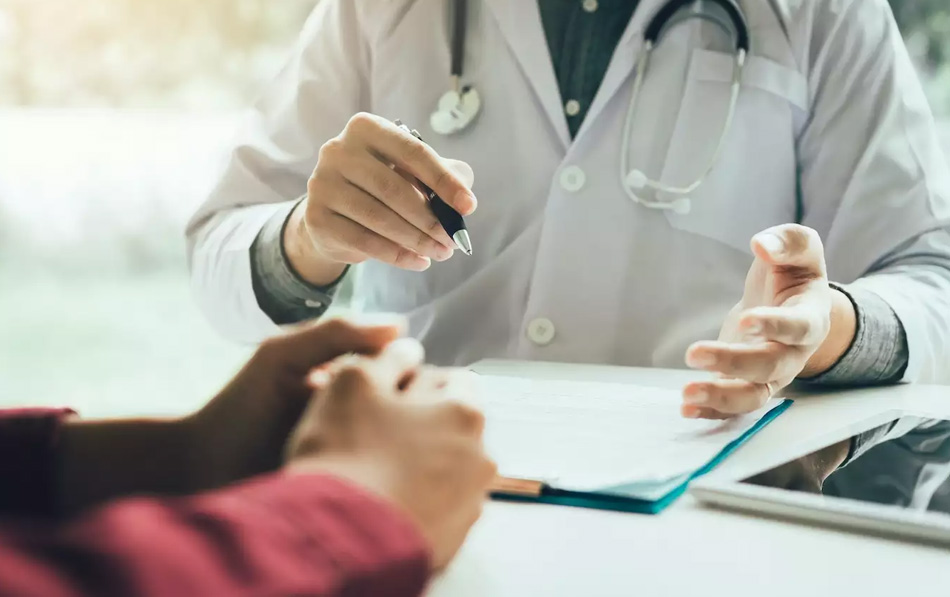Diverticulitis, a painful inflammation of pouches that develop in the lining of your colon (large intestine), can significantly disrupt your daily life. If you’re experiencing symptoms of diverticulitis in Khanna, Dhiman’s Gastro Clinics offers comprehensive care and treatment from leading gastroenterologists.

This article delves into diverticulitis, from understanding its causes and symptoms to exploring the best treatment options available at our clinic. We’ll also highlight the expertise of our highly-skilled gastroenterologists who can help you manage this condition effectively.
Contents
Understanding Diverticulitis
The colon, a muscular tube responsible for absorbing water and eliminating waste, can develop small, bulging pouches called diverticula. These pouches often occur with age and are usually harmless. However, in some cases, these pouches can become inflamed or infected, leading to a condition known as diverticulitis.
Also Read: Best Hepatitis Doctors in Khanna: Get the Treatment You Deserve at Dhiman’s Gastro Clinics
Risk Factors for Diverticulitis
While the exact cause of diverticulitis remains unclear, several factors can increase your risk:
- Age: Diverticulitis is more common in people over 40.
- Diet: A diet low in fiber and high in red meat and refined grains may contribute to the development of diverticula.
- Obesity: Excess weight puts additional strain on your digestive system.
- Smoking: Smoking can weaken the muscles in your colon, making it more susceptible to forming pouches.
- Certain medications: Long-term use of nonsteroidal anti-inflammatory drugs (NSAIDs) can increase your risk.
- Family history: Having a family member with diverticulitis increases your risk.
Symptoms of Diverticulitis
Diverticulitis can present with a range of symptoms, including:
- Severe abdominal pain in the lower left abdomen, which may be constant or crampy
- Tenderness in the lower left abdomen
- Changes in bowel habits, such as constipation, diarrhea, or both
- Fever
- Nausea and vomiting
- Urinary urgency or frequency
Also Read: Gastroparesis Treatment Khanna
Diagnosing Diverticulitis
At Dhiman’s Gastro Clinics, our gastroenterologists use various methods to diagnose diverticulitis, including:
- Medical history: Discussing your symptoms and risk factors.
- Physical examination: Checking for abdominal tenderness and other signs of inflammation.
- Blood tests: Identifying signs of infection.
- Imaging tests: CT scan, ultrasound, or colonoscopy to visualize the colon and confirm the presence of diverticula and inflammation.
Treatment Options for Diverticulitis
Treatment for diverticulitis depends on the severity of your symptoms.
- Mild Diverticulitis: Often managed with conservative measures like:
- Dietary changes: Increasing your fiber intake and avoiding foods that can trigger symptoms.
- Rest: Giving your colon time to heal.
- Antibiotics: To fight any infection present.
- Pain medication: To manage discomfort.
- Severe Diverticulitis: May require hospitalization and more intensive treatment like:
- Intravenous (IV) fluids: To prevent dehydration.
- Antibiotics: Administered through an IV.
- Pain medication: To manage severe pain.
- Rest: May involve bowel rest, where you won’t eat or drink anything for a short period.
- Surgery: In some cases, surgery may be necessary to remove the inflamed section of the colon or create an opening (ostomy) to divert stool flow while the colon heals.
Also Read: Diarrhea treatment Khanna | Best Doctor for Diarrhea in Khanna
Dhiman’s Gastro Clinics: Your Partner in Diverticulitis Management
At Dhiman’s Gastro Clinics, we understand the discomfort and disruption diverticulitis can cause. Our team of highly-skilled gastroenterologists are dedicated to providing comprehensive and personalized care for patients suffering from this condition.
Benefits of Choosing Dhiman’s Gastro Clinics:
- Experienced Gastroenterologists: Our doctors have extensive experience in diagnosing and treating diverticulitis.
- Advanced Diagnostic Techniques: We utilize the latest diagnostic tools to accurately diagnose your condition.
- Personalized Treatment Plans: Our treatment approach is tailored to your specific needs and severity of symptoms.
- Compassionate Care: We understand the emotional impact of diverticulitis and are committed to providing empathetic and supportive care.
Beyond Treatment: Preventing Diverticulitis Recurrence
Following successful treatment, our gastroenterologists work with you to develop a personalized plan to prevent future diverticulitis attacks. This may include:
- Maintaining a high-fiber diet: Aim for 25-35 grams of fiber daily from fruits, vegetables, and whole grains.
- Staying hydrated: Drinking plenty of fluids helps soften stool and prevent constipation.
- Regular exercise: Physical activity helps maintain bowel regularity and overall gut health.
- Maintaining a healthy weight: Excess weight can put additional strain on your digestive system.
- Smoking cessation: Smoking weakens colon muscles and increases the risk of complications.
- Stress management: Chronic stress can worsen digestive problems. Consider relaxation techniques like yoga or meditation.


 Call Us
Call Us Locate Us
Locate Us